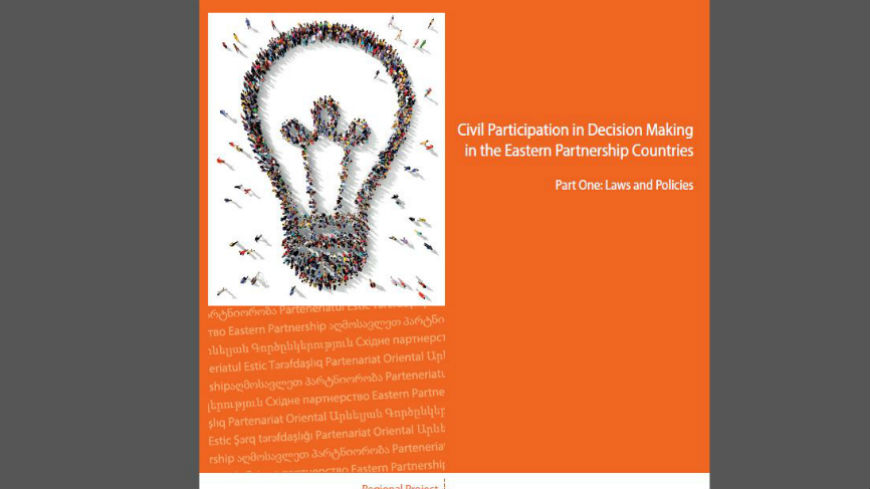A study on 'Civil Participation in Decision Making in Eastern Partnership countries' has just been published. The challenges and opportunities in the field of participatory policymaking differ across the six Eastern Partnership countries (Armenia, Azerbaijan, Belarus, Georgia, Republic of Moldova, and Ukraine), but all six countries face shortcomings in the clarity, effectiveness, and inclusiveness of their policy-drafting and evaluation procedures.
This study examines the existing laws, agencies and procedures governing civil participation in political decision-making at national and local level in the six countries, and will be complemented by a second study in 2016 that will examine the experience of implementation of civil participation in political decisionmaking.
In 2001, in the White Paper on European Governance, the European Commission highlighted five principles of “good governance”.The principles, to be applied at all levels of government, including local and regional tiers, are openness, participation, accountability, effectiveness, and coherence.
The inclusion of the public throughout the different stages of policy drafting and policy implementation underpins the principle of participation. Nongovernmental organisations (NGOs), or civil society organisations (CSOs), bring together policy experts and different groups representing a variety of citizens and community perspectives. As set out in the Council of Europe’s Code of Good Practice for Civil Participation in the Decision-Making Process, “NGOs bring knowledge and expertise to the process of decision-making which has led governments to draw on the experience of NGOs to assist them in policy development and implementation”.
From access to information to opportunities for citizens to participate in direct democracy – whether holding to account the heads of regional executive authorities, or engagement in referenda, petitions or public initiatives – to forms of public participation in policymaking, such as stakeholder analyses, expert reviews, roundtables, and online consultations – all the Eastern Partnership countries have room for improvement in terms of the regularity and inclusiveness of consultations around new policies and draft legislation. In all cases, there is also a need for more training of public officials in co-ordinating public outreach and consultation processes around draft legislation.
The study will be translated into the languages of the Eastern Partnership countries to ensure as wide a dissemination as possible.
The study will be used as a key reference text in a forthcoming debate on 6-7 June in Strasbourg, organised by the Council of Europe's Conference of INGOs: "Only a matter for politicians? Civil society, money and political activities". The conference will recommend ways to fight restrictive measures against NGOs, which some governments often justify for so-called political stability.
Civil Participation in Decision Making in Eastern Partnership countries: Part 1: Laws and Policies

